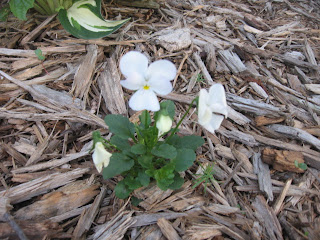- Michelle once compared a novel I have been working on and struggling with to berry bushes. This is a para-paraphrase of her lovely metaphor, but hopefully it works. You plant berry bushes and they grow for a few years before they produce any fruit. But the plant is still alive, still growing, still getting ready for that fruitfulness.
- Along the same lines, I've thought about seeds. You have a seed. You plant it in the ground or a vessel of some sort filled with soil. You water it. You put it in the sun. Notice how it doesn't sprout up immediately. For weeks you water the seemingly empty, fruitless pot of dirt. The days pass and you wonder why nothing is growing, why nothing is beginning to show for all the effort. And then at last, with enough patience, a little green shoot pushes up and into the open air. Just when you'd given up hope. The point of this is that you have to keep watering the little pot of dirt. You can't see the plant yet, but it's there. Same with writing. Something may not be working. A chapter or a scene might be stalling, but you never know what might be happening underneath the surface. You have to keep watering it - or writing it - until it pokes up through the surface. Never abandon it.
- I also had an amarylis bulb, bought on clearance in January. It already had a green shoot coming out of it, so I assumed it was ready to grow and blossom. Nope. I let it sit out for two months, and watered it. It didn't grow. I despaired and finally put it in the garage so I wouldn't have to look at it. Fast forward to April, and I'm gathering pots and soil to grow violas, when I rediscover the amarylis, still sitting there. On a whim, I pick it up, plunk it in a pot and forget it out side. Two weeks later, I look out and see that it has shot up a foot and is sporting at least six bright red buds, all of which open to full glory for a month. Yes, I abandoned the amarlysis, but it came back. It proved me wrong, as these things tend to do. You may think a piece of writing is dead when it only requires a little patience, a little time to be dormant, and a little love.
- Violas. The seeds are tiny. The flowers are sweet and resilient. I bought white ones on clearance last year and they grew till September. This spring, I was excited to discover they had seeded themselves in the landscaping in front of the house - white faces thriving in lovely clusters in the wood chips and in cracks in the side walk.
- I went wild with the idea that if little tough flowers could grow in between the cracks in the cement, like weeds do, they could grow in tinier vessels as well. Hence, a thriving viola, grown from seeds (above) inside a glass votive holder and broken (and otherwise useless) tea cups, straightened by a paper clip, and sporting a blossom and two buds.
So... if violas can grow in the cracks in the sidewalk, my ideas can thrive in unusual places. I just have to be a little patient. And try not plant too many seeds in one little jar.




